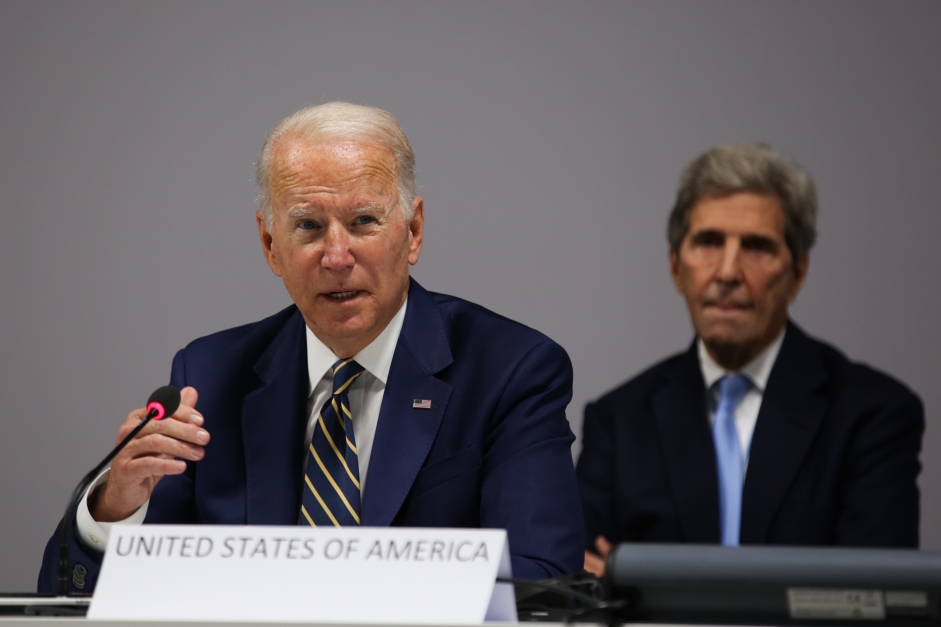Hey President of the United States, Joe BidenThe White House said a law on Thursday bans imports from China’s Xinjiang region due to concerns about forced labor, prompting China to condemn the measure.
Uyghur law to prevent forced labor is part of the reaction of the Uyghur community United State Against Beijing’s treatment of China’s Uighur Muslim minority, which Washington has called genocide.
Congress passed the bill this month after lawmakers reached an agreement between the House and Senate versions.
Key to the legislation is the “rebuttable assumption” that all goods in Xinjiang, where Beijing has set up internment camps for Uyghurs and other Muslim groups, are made with forced labor. The text prohibits import unless proven otherwise.
Some products – such as cotton, tomatoes and polysilicon used to make solar panels – were rated as “high priority” for examination. the China Denies abuses in Xinjiang, a major cotton producer that also supplies a lot of global materials for solar panels.
China’s embassy in Washington said the act “ignores the truth and maliciously distorts the human rights situation in Xinjiang.”
This is a serious violation of international law and norms of international relations and a major interference in China’s internal affairs. Embassy spokesman Liu Bingyu said in an emailed statement that China firmly condemns and firmly rejects it.
He said China would “respond more in light of the development of the situation” but did not elaborate. In a statement on Friday, China’s Foreign Ministry expressed “strong dissatisfaction and resolute opposition” to the legislation.
“Allegations of ‘forced labor’ and ‘genocide’ in Xinjiang are nothing but vicious lies propagated by anti-China forces,” the statement said.
The United States engaged in “manipulation Policy and economic intimidation under the guise of human rights “and they are trying” to “undermine the prosperity and stability of Xinjiang and contain China’s development,” the document added.
Nuri Turkel, vice president of the US Commission on International Religious Freedom, told Reuters this month that the law’s effectiveness will depend on the Biden government’s willingness to ensure its effectiveness, especially as companies seek waivers.
US Secretary of State Anthony Blinken said Biden’s passage of the law underscores “the United States’ commitment to combating forced labor, including in the context of the ongoing genocide in Xinjiang.”
“The State Department is committed to working with Congress and our interagency partners to continue to combat forced labor in Xinjiang and to advance international action against this flagrant violation of human rights,” he said in a statement.
One of the law’s co-authors, Democratic Senator Jeff Merkley, said it was necessary to “send an unmistakable, resounding message against genocide and forced labour.”
“Now… we can finally ensure that American consumers and businesses can purchase products without unintended complicity in China’s horrific human rights abuses,” he said in a statement.
In her last days in January, the government trump He announced the ban of all cotton and tomato products from Xinjiang.
The US Customs and Border Protection then estimated that $9 billion worth of cotton products and $10 million worth of tomato products were imported from China last year.
Additional reporting by CNN’s Yong Xiong.
Participate:

“Music fanatic. Professional problem solver. Reader. Award-winning tv ninja.”






More Stories
Couple retakes glacier photo after 15 years, surprised by changes: ‘It made me cry’
Two killed in hotel collapse in Germany – DW – 07/08/2024
Lula speaks for half an hour on phone with Biden about Venezuela’s electoral impasse | Politics